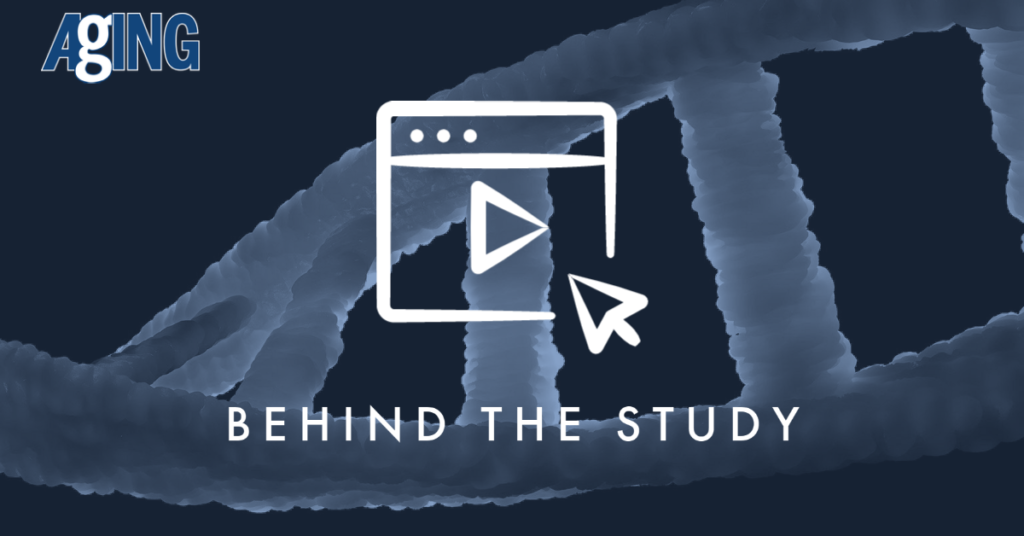“At the end of the trial, the intervention group was, on average, 2.04 years younger than their baseline epigenetic age (p = 0.043).”
In a world where we are living longer but not always healthier, scientists are searching for ways to add life to our years, not just years to our lives. A recent study published in Aging (Aging-US), Volume 17, Issue 4, led by researchers at the National University of Natural Medicine, suggests that certain common foods, already known for their health benefits, might also help slow or even reverse epigenetic or biological aging. These foods, rich in specific plant compounds, appear to influence our DNA in ways that may slow down the body’s epigenetic clock.
Understanding Epigenetic Aging
While chronological age is simply the number of years we have lived, epigenetic or biological age reflects how fast our bodies are aging at the cellular level. This process is measured by patterns in DNA methylation—chemical changes that can alter gene activity without changing the DNA sequence itself. Over time, shifts in DNA methylation are linked to increased risks for conditions like cancer, heart disease, and dementia. Because lifestyle factors such as diet can influence DNA methylation, researchers are exploring whether healthy eating might actually help us age more slowly.
The Study: How Food Might Influence Epigenetic Aging
In an earlier trial called the Methylation Diet and Lifestyle study, 43 healthy men between the ages of 50 and 72 followed a comprehensive eight-week program involving diet, sleep, exercise, and meditation. Participants in the intervention group became, on average, more than two years “younger” in terms of their epigenetic age. The dietary component of the program emphasized whole, plant-based foods, lean meats, and a group of foods classified as “methyl adaptogens.”
In a follow-up study titled “Dietary associations with reduced epigenetic age: a secondary data analysis of the methylation diet and lifestyle study,” a research team led by Jamie L. Villanueva from the University of Washington and the National University of Natural Medicine, along with Ryan Bradley also from the National University of Natural Medicine and the University of California, San Diego, analyzed participants’ self-reported diets to understand why some experienced greater biological age reversal than others.
The Results: A Diet That May Slow Epigenetic Aging
The study found that men who consumed more methyl adaptogen foods—such as green tea, turmeric, garlic, berries, rosemary, and oolong tea—showed the most substantial reductions in epigenetic age, up to 8 years. These associations remained strong even after accounting for weight loss, suggesting that the foods themselves played a central role in the observed biological changes.
Methyl adaptogens are rich in polyphenols, plant compounds known to influence DNA methylation by regulating enzymes that control gene expression. These polyphenols interact with cellular systems involved in DNA repair, inflammation, and metabolism—all key players in the aging process. Compounds like EGCG in green tea, curcumin in turmeric, and allicin in garlic are also known to influence the PI3K/AKT/mTOR pathway, a major regulator of cell survival and aging.
The Impact: A Natural Way to Care for Our Health
These findings support the idea that food can be a powerful tool for promoting healthier aging. Unlike drugs or supplements, this approach is natural, non-invasive, and based on foods that are already accessible to many. The findings could lead the way for personalized nutrition strategies that go beyond disease prevention, aiming to influence the very pace of aging.
Future Perspectives and Conclusion
Although the study was relatively small and limited to middle-aged men, the results are promising. Larger, more diverse studies are needed to confirm these findings and assess their broader applicability, including for women and other age groups. The researchers also note that additional tools for measuring aging more accurately would be valuable in future investigations.
Nevertheless, this research provides a positive reminder: our daily choices, particularly the foods we consume, can significantly influence our aging process. Including foods such as green tea, garlic, berries, and turmeric in our diets may not only promote better health but also slow down the aging process.
Click here to read the full research paper in Aging.
___
Aging is indexed by PubMed/Medline (abbreviated as “Aging (Albany NY)”), PubMed Central, Web of Science: Science Citation Index Expanded (abbreviated as “Aging‐US” and listed in the Cell Biology and Geriatrics & Gerontology categories), Scopus (abbreviated as “Aging” and listed in the Cell Biology and Aging categories), Biological Abstracts, BIOSIS Previews, EMBASE, META (Chan Zuckerberg Initiative) (2018-2022), and Dimensions (Digital Science).
Click here to subscribe to Aging publication updates.
For media inquiries, please contact [email protected].

